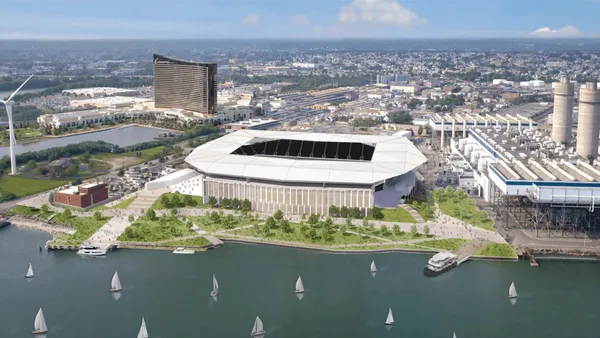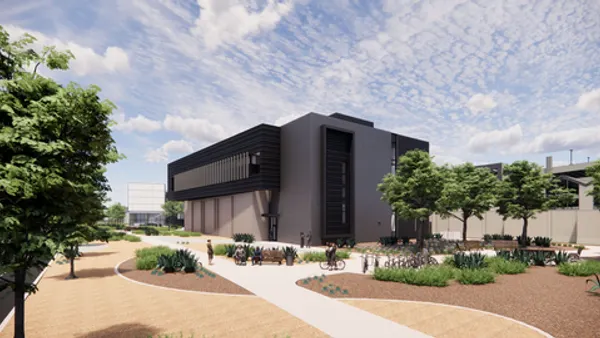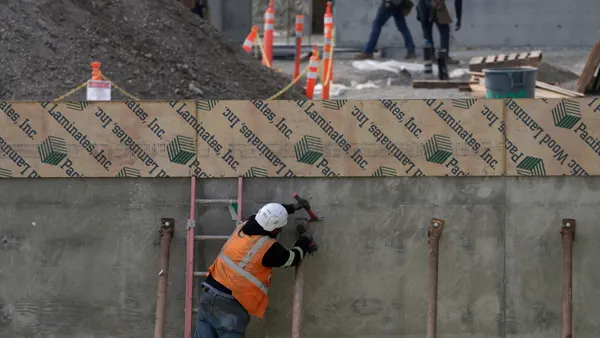Dive Brief:
- Los Angeles advocacy group Fix the City has filed a lawsuit against the City of Los Angeles in an effort to prevent changes in allowable density along the Metro Expo Line until existing city infrastructure and services are adequate enough to meet current residents' needs, which is a requirement, the group alleges, set forth in the Framework Element of the city's General Plan.
- At the heart of the lawsuit is the Exposition (Expo) Corridor Transit Neighborhood Plan, which would increase residential density by 20% and employment by 25% within a half-mile of five stations along the line, which runs from downtown Los Angeles to Santa Monica, California. Fix the City claims that Los Angeles residents lose $1,700 a year in time and fuel, as well as $1,000 annually to car repairs due to substandard road conditions. The group also alleges that public emergency response time takes too long as it is and that increasing density would further stress these and other services. "Residents all see the pot-holed streets; curbs and gutters that are a danger to bike riders; dangerous sidewalks posing a hazard to pedestrians; soul-crushing, worst-in-the-country traffic," Fix the City maintains, "and they feel the increasing crime rate in our neighborhoods."
- The lawsuit asks the court to prevent the city from implementing the Expo Plan and asks the court to force the city to rescind its approval of the plan. The group says the city must abide by lawmakers' decisions as reflected in the General Plan and "either improve the infrastructure so that it is adequate or not increase allowable population density until such time as adequate infrastructure is provided."
Dive Insight:
Some Los Angeles residents and other advocacy groups have long fought the high-density projects that have been springing up around Los Angeles, particularly in the city's downtown area. These individuals and organizations have vowed to fight mega, mixed-use projects, even though city voters rejected a measure in March of last year that would have put a moratorium on such development.
However, the pushback has not stopped the city from marching forward with high-density projects, especially given the pressure for local officials to address a chronic shortage of housing. In September, the Los Angeles Planning Commission voted to back the $1 billion Crossroads Hollywood mixed-use development in Hollywood, California, although some groups complained about the potential for increased traffic congestion, noise pollution and the elimination of rent-controlled apartments. The project will see the addition of more than 300 hotel rooms, 950 apartments and almost 200,000 square feet of commercial space, all of which is expected to create 2,500 construction jobs.









